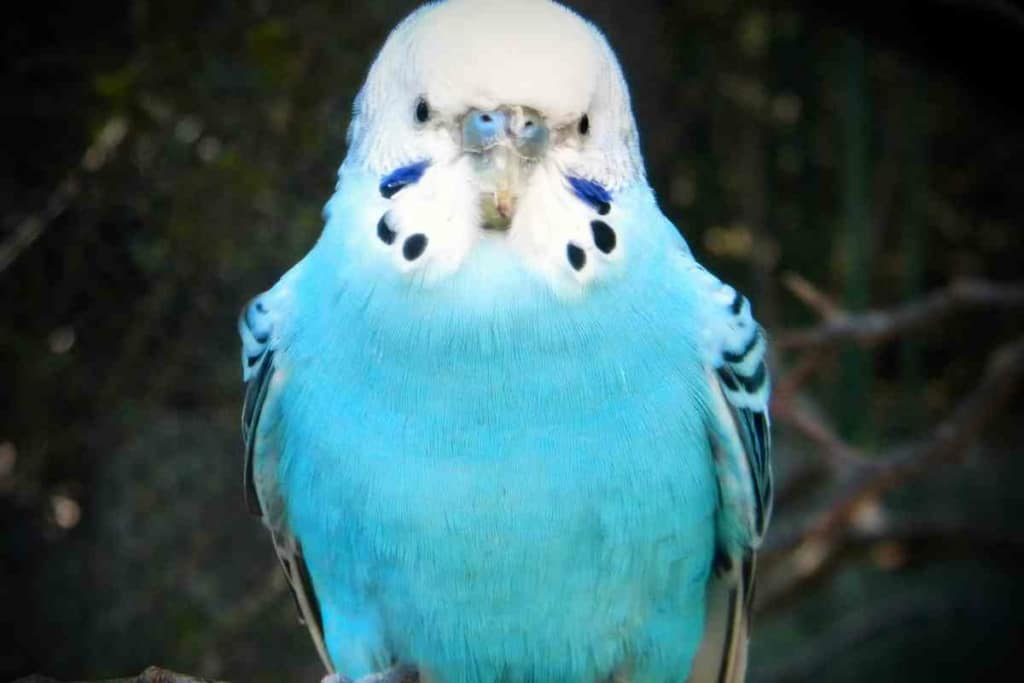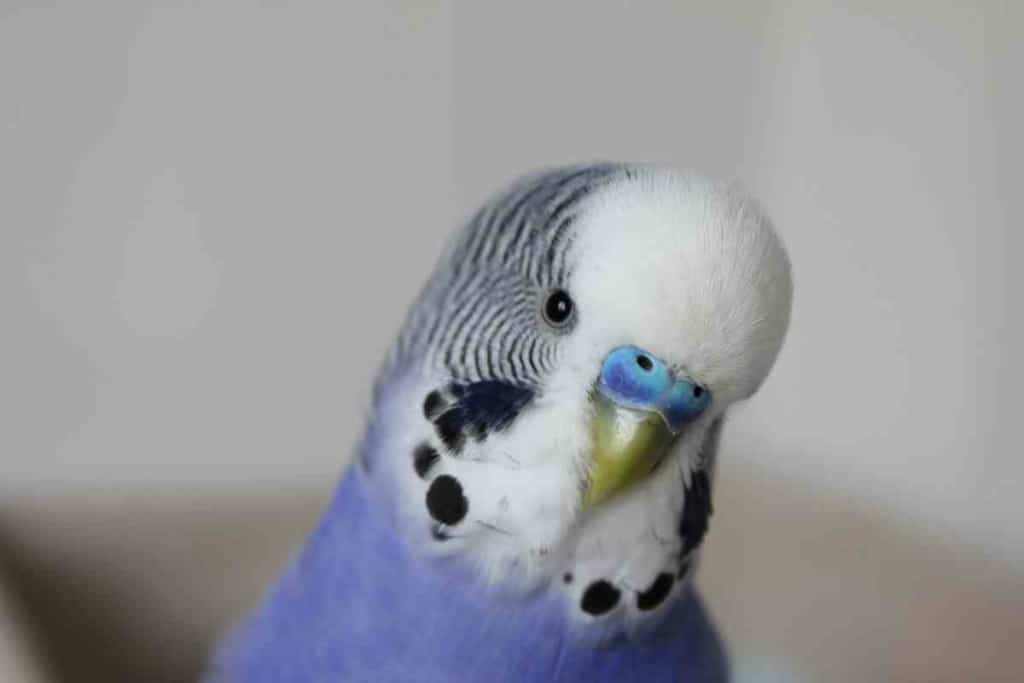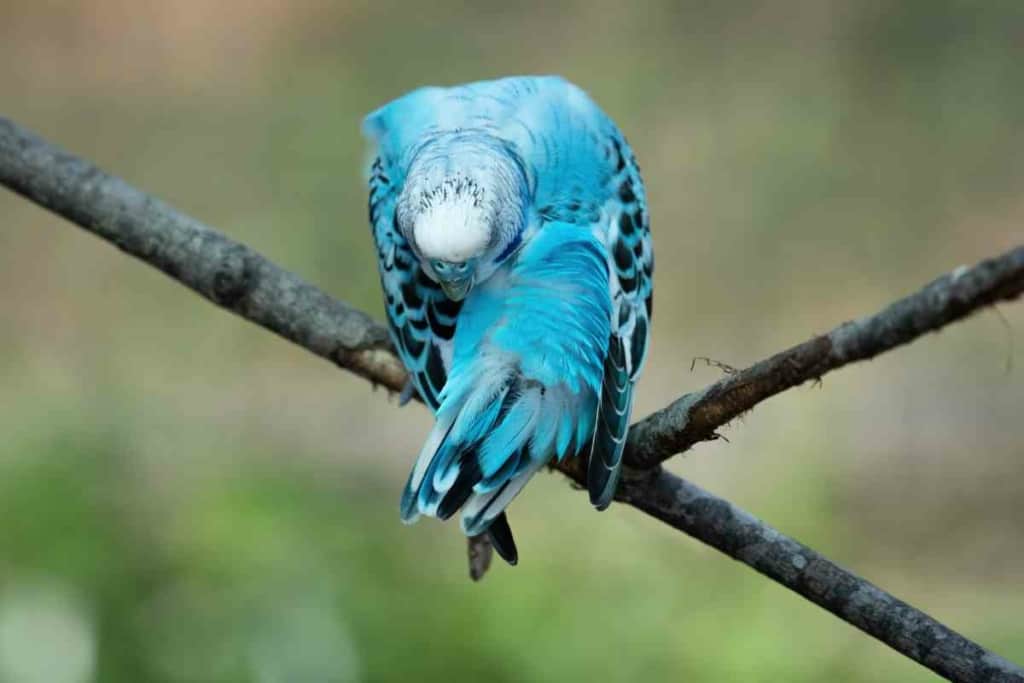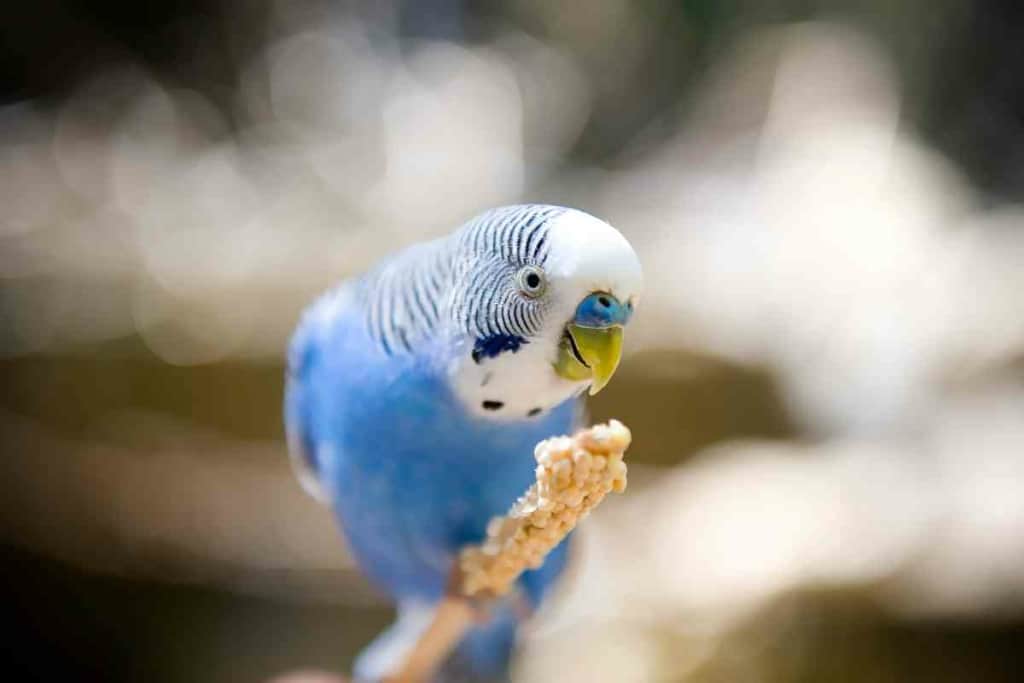Blue Parakeet Lifespan: 5 Tips To Keep Them Alive Longer
Blue Parakeets are one of the rarest and most expensive birds known to man. Many who aspire to own these creatures as pets wonder how long do blue parakeets live.

How Long Do Blue Parakeets Live?
The average life expectancy of a blue parakeet is around 10 to 15 years. However, if these creatures are looked after and cared for, they can survive up to 20 years in captivity.
It is understood that life expectancy is affected by a variety of factors, including diet, housing, activity level, and genetics. While there is no guarantee that your new blue parakeet will reach the upper end of the life expectancy range, there are several things you can do to help them live a long and healthy life.
Here we will go over the many factors that impact a blue parakeet’s health and ways to ensure your pet lives a happy, healthy, and full life.
What are Blue Parakeets?
The blue parakeet, also known as the budgerigar or budgie, is a small, long-tailed species of parakeet native to Australia.
These beautiful birds are some of the most popular pets in the world and are known for their intelligent, creative, yet playful nature and the inherent ability to imitate human speech.
While wild budgies typically have green bodies with yellow heads, the blue coloration of captive birds is the result of selective breeding.
Blue parakeets come in a variety of colors and patterns, including blue-green, sky blue, navy blue, violet and white.
What is a Blue Parakeet’s Lifespan?
In the wild, blue parakeets typically live for 5-10 years. However, in captivity, these birds can live much longer – up to 20 years with optimum care and living conditions.
The average lifespan of a blue parakeet is 10-12 years, but some birds have been known to live 15, 20, or even 25 years.

Factors that Affect Blue Parakeet Lifespan
It is safe to say that a Blue Parakeet’s lifespan is greatly affected by the environment in which they live and its lifestyle choices. The following are some of the most important factors that impact a blue parakeet’s lifespan:
Diet
A healthy parakeet diet is essential for your pet. A diet rich in vitamins, minerals, proteins, and antioxidants will help keep your bird healthy and prolong its life.
A diet lacking in these nutrients can lead to health problems such as obesity, heart disease, and feather loss.
The best example of a healthy diet for blue parakeets is a seed-based diet complemented with a variety of fruit treats for your parakeet like oranges and veggies.
A good quality budgie mix should also be available at all times. It is important to avoid giving your bird processed foods, sugary treats, or table scraps, as these can cause weight gain and health problems.
Housing
Blue parakeets should be kept in a large cage or aviary that allows them to fly and exercise. The cage should be located in a quiet area of the house, away from drafts, direct sunlight and loud noises. To provide them with safety and comfort, the cage should be equipped with perches, toys and plenty of hiding places.
Activity Level
Blue parakeets are active birds that need plenty of space to fly and play. However, in captivity, they do not have the opportunity to fly as much as they would in the wild.
As a result, it is important to provide them with toys and playthings that will keep them active and engaged. A lack of exercise can lead to obesity, joint problems and feather loss.
Some great ideas for parakeet toys include:
- mirrors
- ladders
- swings
- chew toys
- puzzles
It is also important to let your bird out of its cage for at least a few hours each day so that it can stretch its wings and explore.
If you have more than one blue parakeet, it is best to let them out together so that they can socialize and play.

Genetics
Hereditary factors play a role in determining lifespan, and some birds are simply genetically predisposed to living longer than others.
If your parakeet comes from a long-lived bloodline, it will likely have a longer lifespan than a bird with shorter-lived ancestors.
However, you must keep an eye out for health problems that may arise due to inbreeding, such as heart defects and weakened immune systems.
Proper care and attention
As with all pets, proper care and attention will help your blue parakeet live a long and happy life. This includes regular vet checkups, grooming, handling and providing a stimulating environment.
Perhaps the best thing you can do for your bird is to simply spend time with them. Talk to them, play with them and get to know their personality.
By building a bond with your blue parakeet, you will create a lifetime of companionship.
How to Prolong Blue Parakeet’s Lifespan
While the life expectancy of a blue parakeet cannot be predicted beforehand, there are some steps you can take and changes you can intentionally make to help prolong its life. These include:
Do Your Research
Your first priority as a parakeet owner should be to do thorough research and get a good idea of what to expect in terms of care and maintenance.
Secondly, it is essential to ensure that the particular breed you’re interested in is a good fit for your home and lifestyle.
And lastly, because different parakeets can have different personalities, it’s important to find one whose personality will mesh well with your own. Taking the time to do your research upfront will help ensure that you and your blue parakeet are happy together for years to come.

Regular Vet Checkups
Regular visits to the vet are essential for parakeets, even if they seem physically healthy. This will help doctors identify any health problems early on and start treatment before the issue worsens.
Get regular blood work done, and make sure to get your blue parakeet checked for parasites on each visit.
These tiny creatures can cause a variety of health problems, so it is important to keep them under control.
Keep an eye out for signs of parasites, such as diarrhea, weight loss, and feathers that are not looking their best. Remember to stay updated with vaccinations like the ones for pox and paramyxovirus.
Provide a Stimulating Environment
Blue parakeets are active birds that need plenty of space to fly, play and even socialize. These creatures need to connect with their environment to stay mentally healthy, so it is important to provide them with a lively environment.
Place toys like ladders, swings and mirrors in their cage to keep them entertained and offer them plenty of opportunities to fly and exercise. You can also take them out of their cage for some free time each day.
Provide your parakeet with plenty of opportunities to interact with other birds. Do so by taking them to bird parks or letting them out of their cage in a room where there are other birds.
Be sure to give them lots of attention and affection, as this provides a feeling of love and security.
Active Foraging
A foraging toy is a great way to keep your blue parakeet’s mind active and engaged. These toys offer them the opportunity to search for food, which is something they would do in the wild.
This not only helps to keep them mentally stimulated but also provides them with some exercise.
Moreover, this activity is a great way to keep their beaks healthy and trim. There are a variety of foraging toys you can purchase or make at home. Some examples include:
- A bowl with safe objects hidden inside that they have to find
- A cardboard box filled with shredded paper and small treats
- A homemade toy made out of wood, string and beads
Key Takeaways
- The lifespan of a blue parakeet depends on a variety of factors, including genetics, diet, environment and more.
- However, with proper care and attention, you can help your bird live a long and happy life.
- Remember to do your research before bringing home a blue parakeet, visit the vet regularly and provide them with a healthy diet and stimulating environment to ensure they live life to the fullest.
